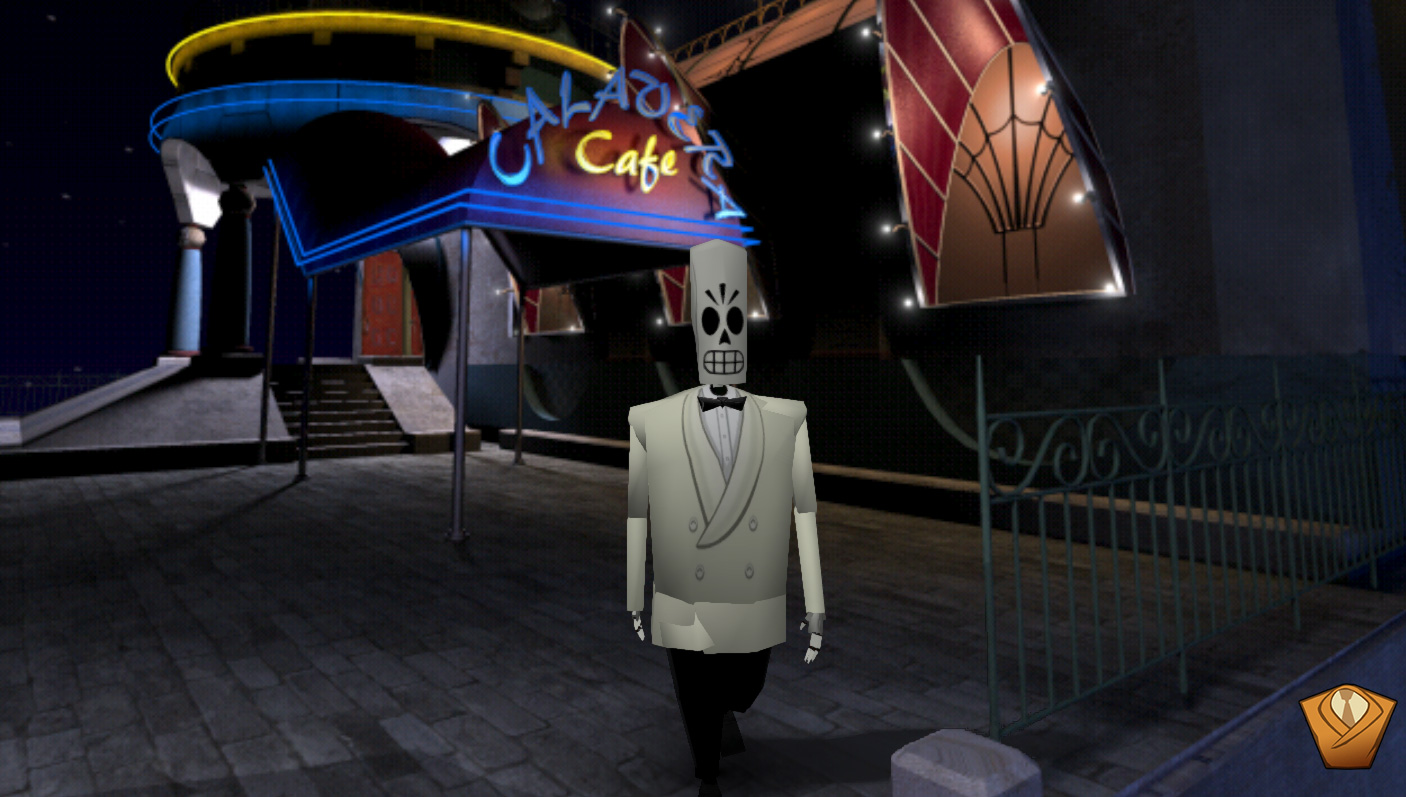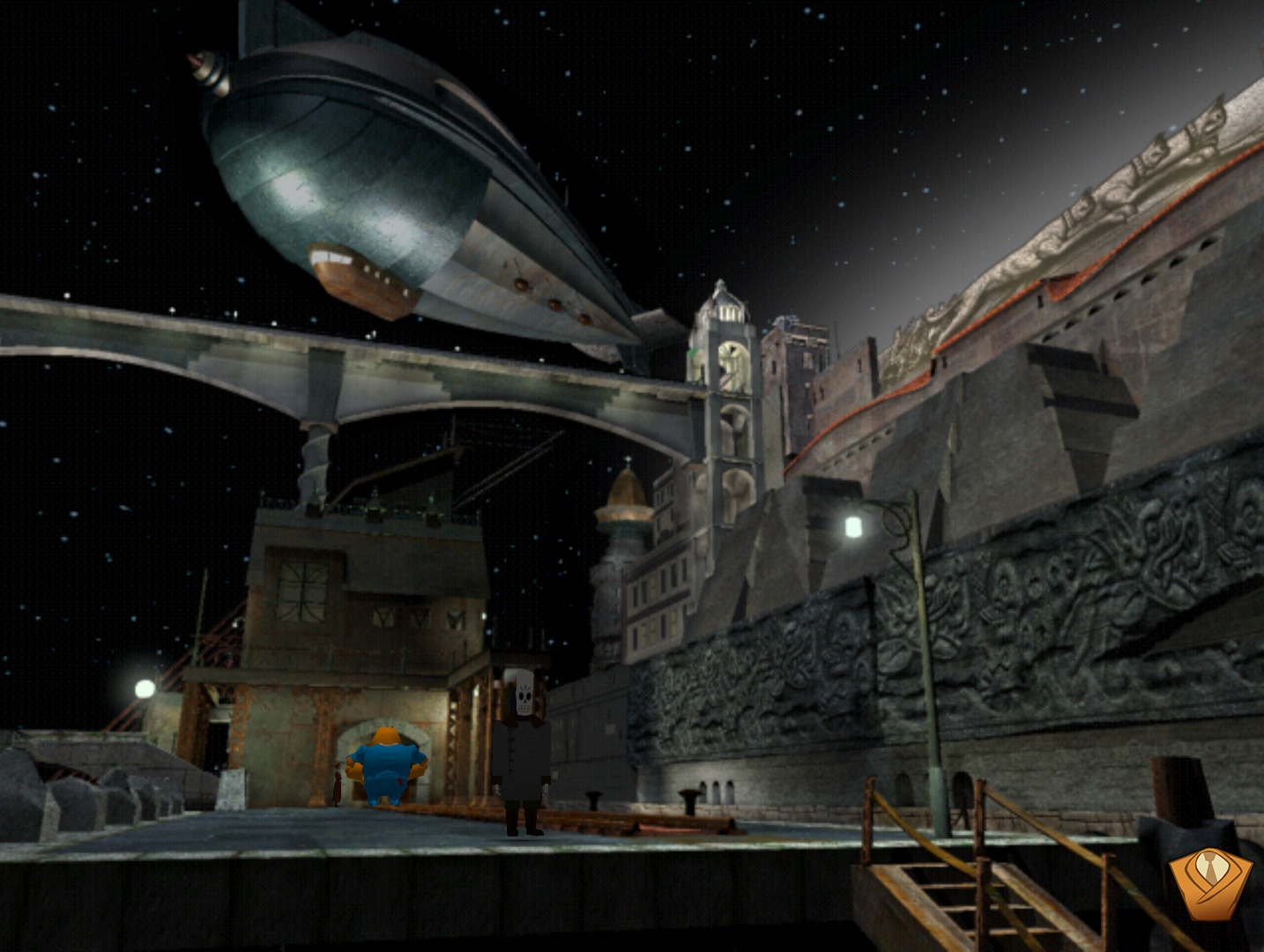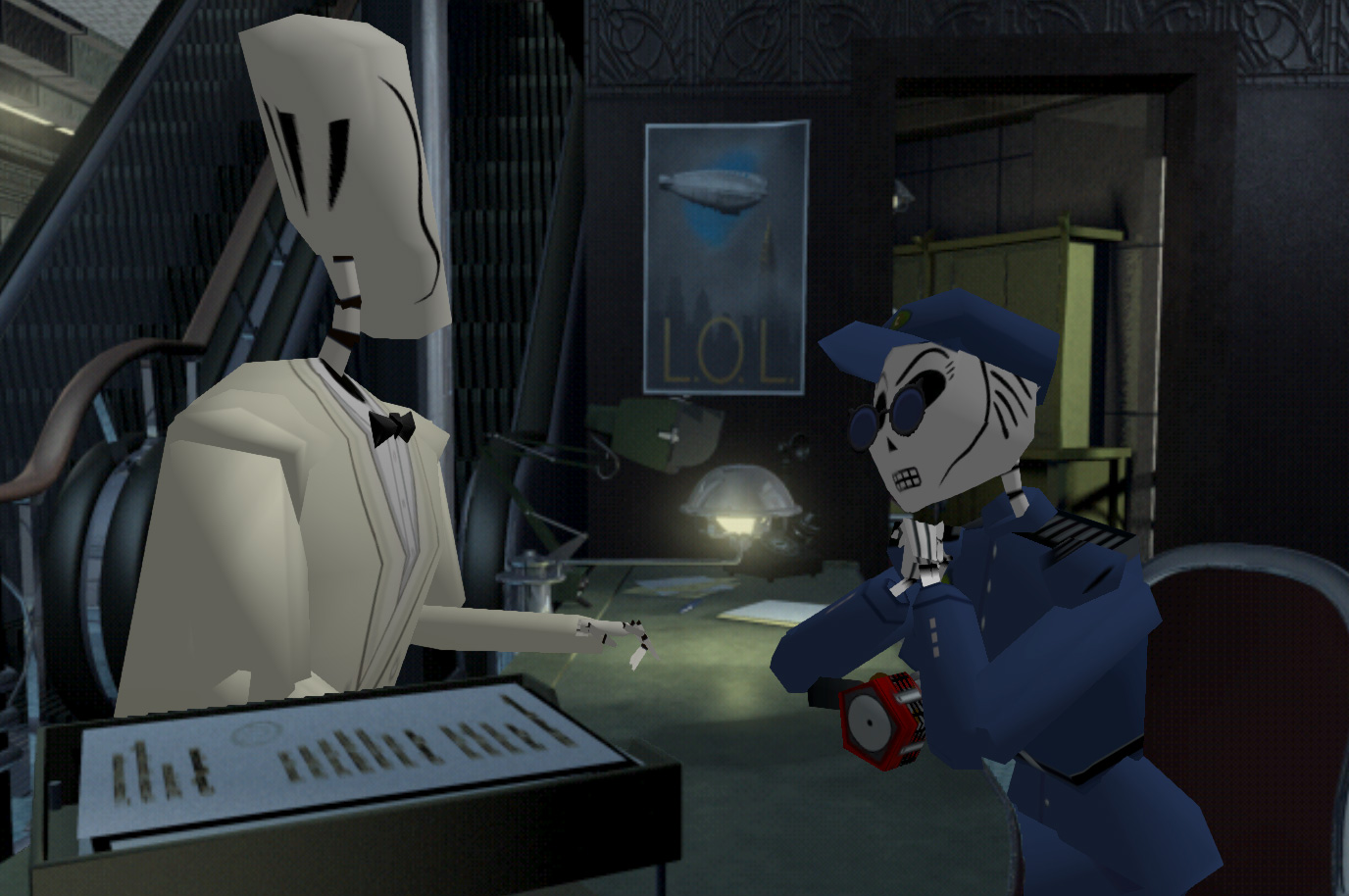A postcard from Rubacava
Once more we dance a Grim Fandango.

In this column Richard Cobbett took a look at the world of story and writing in games.
"With bony hands I hold my partner. On soulless feet we cross the floor, The music stops as if to answer. An empty knocking at the door. It seems his skin was sweet as mango. When last I held him to my breast. But now we dance this grim fandango. And will four years before we rest."
Grim Fandango is an undisputed adventure classic, and the Remastered edition is a great opportunity to check it out for the first time, or to head back to play it as it is in your head, rather than the far lower-res version the original actually was. It's a game of great characters and lines, a wonderful fusion of film noir and Mexican themed fantasy, and many , many wonderful moments worth holding to your heart.
Pretty much everyone agrees though that its peak is Act 2, set in the town of Rubacava. It's where all the pieces come together and the noir side comes into the foreground. Rubacava is a little bit of Casablanca, a little bit of The Big Sleep, a little bit of this, a little bit of that. It's probably the best single noir style location ever created for a game, and one of the best cities, even if it is a little large and unpopulated even with the hand wave that most people are out of town to celebrate The Day of the Dead.

There's much to praise about Rubacava, of course. Visually, it's stunning - the water lapping against the bridges, the art deco designs, the sudden bursts of scale and spectacle like the blimp that hangs over the cat racing track. The music in the background couldn't be better. The characters are all splendid, from femme fatale Oliva to the doomed Lola, to Carla, the security guard just looking for an excuse to give Manny a loving strip-search... until she finds out he only wants her metal detector.
But there's something else that makes Rubacava so effective, and which few other games have managed to replicate. It's a place that, while technically constructed as a place of puzzles and story progression, never actually feels like one. It has a weight to it. More specifically, it has a history—and I'm not talking about lore here.
In most adventure games, indeed, most games period, you're effectively a wanderer with no real connections outside of perhaps a childhood friend/love interest from the village that probably burned down back in the prologue to get you off your arse and adventuring. Rubacava is a rarity because Manny actually sticks around—a full year takes place off-screen, in which he goes from sweeping the floor at a shitty little cafe to proudly staring out from the balcony as its swanky manager and a respected figure around town.
What that missing year provides are the social connections and stakes that most adventure characters lack. Just for starters, there's the cafe. When Manny sets out to find Meche, he's an outlaw, under threat, with nothing but the contents of his pockets. When he gets a sniff of her trail in Act 2, he has to start making serious sacrifices to continue the search. He has to give up a comfortable life and at least decent standing around town. He has to give up everything he's built. He has to give up any friendships he's made, just as he's turned them down before. And he doesn't even think twice about it. The second he has that chance to pursue his redemption, despite having no way of helping any more, he's ready to burn it all down and get out of town on the very next ship. By the time he's done, it's a wonder Rubacava still has any bridges left.
Keep up to date with the most important stories and the best deals, as picked by the PC Gamer team.
But that's the big picture stuff. As ever, the real genius tends to be found in the smaller details. In the case of Rubacava, it's that Manny hasn't been living in a bubble for the last year. He's a known face to everyone, and accordingly has history with just about everybody—as a business rival, as a small fish, as a love interest admired from afar, as a boss who JUST DOESN'T CARE ENOUGH ABOUT THE COAT CHECK SYSTEM EVEN THOUGH IT TOOK AGES!
Rarely does this extend to long "Hey, remember when we..." type reminiscences, because the script is smarter than that. The details don't matter. What matters is that the characters feel them, and they work into how they all interact and talk about each other. The lawyer who insists Manny butter his ego just to rub his face in buttery rejection. The pathos of Lola as she dies wishing that he hadn't been so hooked on Meche to give her a look, and his subsequent naming of a ship in her memory. Manny being smart enough to steer well clear of Olivia the femme fatale, if not quite smart enough to think twice about her sudden commitment to a revolution she previously knew nothing about. Curse her inevitable betrayal!

These moments of connection ground the entire town, make it feel like a real place with its own culture. It's helped too by the moments of reflection of how far downhill it's going, with one of the bigger missed opportunities being that we don't really get to see it as a full on mob-town when Manny returns a couple of years later.
I've always loved those moments in games where we get to see the same place after time passes, whether it's Chandler Avenue in the Tex Murphy games or the entire of Britannia in the Ultima series. It's nice to think of favourite characters existing as more than simply puzzle pieces and obstacles, and something that games offer more scope for than any other medium. It tends to be underused though, with sequels usually preferring to head further afield and only pay a little lip-service to non-plot critical nostalgia.
None of this would work if the city and the characters themselves weren't interesting enough to be worth investing in, and there of course Grim gets great benefit from being able to lean on tropes and archetypes. It's crucial however to why Rubacava just inherently feels more solid than most places, and why inevitably leaving it is to say goodbye in a way that driving away from Manny's original home, El Marrow, never really does. There, he had an existence. In Rubacava, he actually has a life*. There's a huge difference, and one that other games would do very, very well to learn from.
(* Metaphorically speaking, of course. Ahem.)

